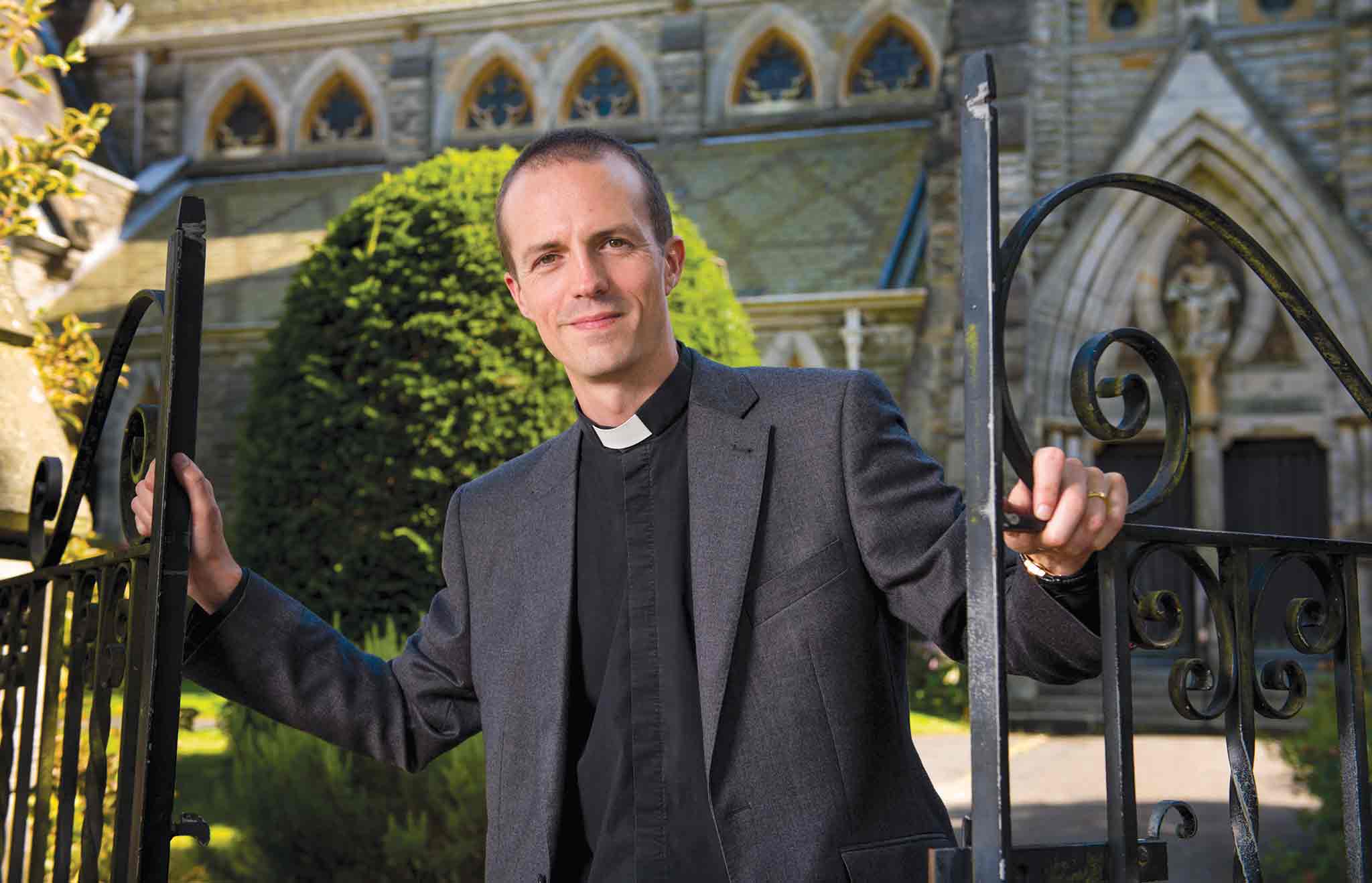A controversial Tunbridge Wells vicar is hosting a meeting of disgruntled clergy this week. They will discuss ’embryonic’ plans to break away from the modernisation process taking place in the Church of England.
Rev Dr Peter Sanlon of St Mark’s Church on Broadwater Down invited representatives of ten other parishes to discuss their reactions to issues such as blessings for same-sex marriages.
The 11 Parochial Church Councils, which include members from the dioceses of Rochester – of which Tunbridge Wells is a part – Canterbury and Chichester, are deciding whether to join a new ‘Anglican synod of churches’ – five of them have already signed up. They are also formulating an alternative creed to be called the ‘Jerusalem statement’.
The group sees itself as upholding traditional Christian teaching and the authority of the Bible in the face of growing liberalism within the Church of England.
It is not seeking to create a schism within the Anglican movement, but rather to create a church within a church.
However, it is contemplating withholding collections taken at church services and redirecting them towards the breakaway group’s ‘missionary’ work.
Dr Sanlon recently reacted to the news that a church in the diocese of Chichester, St Luke’s Prestonville, was holding a ‘Pride tea party’ to coincide with the Pride festival in Brighton.
He tweeted: “Diocese Chichester proud to promote gay pride events. Wonder how much longer orthodox churches willing to pay?”
Dr Sanlon told the Daily Telegraph: “If senior leaders of the Church of England water down the teaching of the Church of England on key issues like homosexuality, then this synod could easily evolve into a new Anglican jurisdiction in England.
“The Archbishop of Canterbury has signalled that he is aware of the possibility that a significant proportion of the church will not accept a change in the church’s teaching. This could be the beginning of that playing out.”
He added: “I am not leaving the Church of England, but in order to stay, I need new partnerships and structures to discharge the mission of the Church of England, which is to bring the message of Christ to every postcode in England.
“We have set these structures up in a very small embryonic form across three dioceses. My only problem now is coping with the number of clergy contacting me wanting to know how they can join in.
“My overriding concern is to see the mission of the Church of England effectively discharged: the partnerships to do that are not possible between churches which promote ambiguity about teaching on sexuality.”
Last weekend the Archibishop of Canterbury, Rev Justin Welby, told the Greenbelt Christian festival that he was ‘constantly consumed with horror’ about the Church of England’s treatment of gay and lesbian people.
The General Synod met in July to discuss the issue of homosexuality and the church in order to seek a reconciliation between the two sides in the debate.
The Church of England has recently seen ‘services of blessing’ – which are effectively marriages in all but name – being performed in low-profile ceremonies across the country.
Last year, the Global Anglican Future Conference in London, representing some 40 million Anglicans worldwide, endorsed a new grouping of around a dozen congregations affiliated to the Anglican Mission in England, a conservative evangelical wing of the church which is already breaking away from the established church hierarchy.
St Mark’s Church is celebrating its 150th anniversary this September. Dr Sanlon has been preaching there since 2013, and within 18 months he caused controversy by axing the church choir last year. Some of the choristers had sung at the church for more than four decades.
One former member of the congregation, Richard Heritage, said at the time: “I of course am very sad to be leaving St Mark’s after nearly 38 years but many of us feel that we cannot continue to worship there after everything that’s gone on recently.”
Neil Townsend also commented: “There are many people who attended the church for many years (or all their lives so far) who were effectively given the choice between: ‘Enjoy the changes’ or ‘Go away’. There was never any hint of accommodation of other possibilities.”








